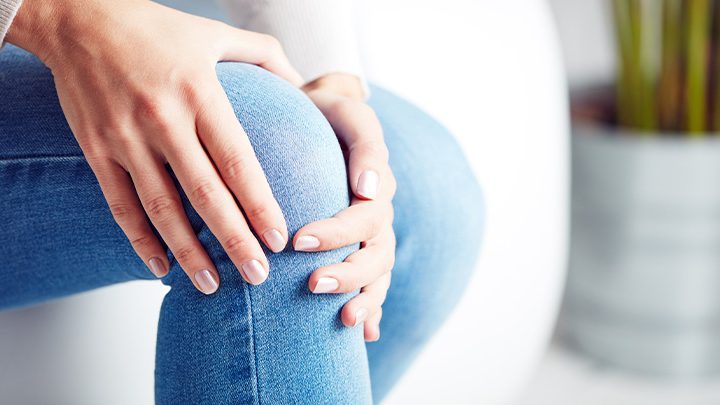
The Most Important Symptoms of Osteoarthritis
According to the WHO, osteoarthritis is the single most common cause of disability worldwide. The symptoms of osteoarthritis are as a result of “wear and tear” of the joint cartilage, which eventually – over months or years – affect the entire joint.
The most relevant symptoms of osteoarthritis
Chronic joint pain The pain can affect one or more joints and it typically occurs during or after movement.
Stiffness in the joints
In contrast to pain, stiffness tends to occur after resting, being inactive or on waking up in the mornings – after a nights sleep.
Tenderness of the joints
The uncomfortable sensation of “tender joints” is apparent when applying light pressure to the joint
Less flexibility The joint is not able to move through its full range of motion
Grating
This is probably one of the most disturbing symptoms. Feeling a grating sensation in the joint, or even hearing popping or crackling noises can be quite annoying.
Swelling
Swelling is typically a later symptom of OA. Swelling occurs when the lining of the joint – called the synovium – becomes inflamed, and produces more joint fluid. This excess fluid creates swelling and negatively impacts the osteoarthritic joint.
Bone spurs
Bone spurs are hard bony nodules or bumps which may form near or around the affected joints.
Some of the above listed symptoms may occur with no presence of osteoarthritis. However, if one or more of the above listed symptoms persist for longer than 2-3 weeks then the probability of osteoarthritis is higher. If this is the case, you should see a medical professional.

Further diagnostics, like X-ray or MRI will provide evidence to see if the physical symptoms are, indeed caused by osteoarthritis or not. If you would like to learn more about how a doctor assesses your joint condition you may like to read the helpful article titled “Do I need a knee assessment”.
There are also different stages of osteoarthritis, so depending on the stage of the disease, your symtoms may be less or more severe.
We hope that you found this list of the common symptoms of osteoarthritis helpful for you? Remember to keep reading and be kind to your joints!
The Joint Gurus